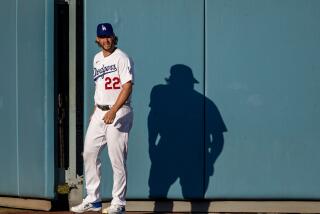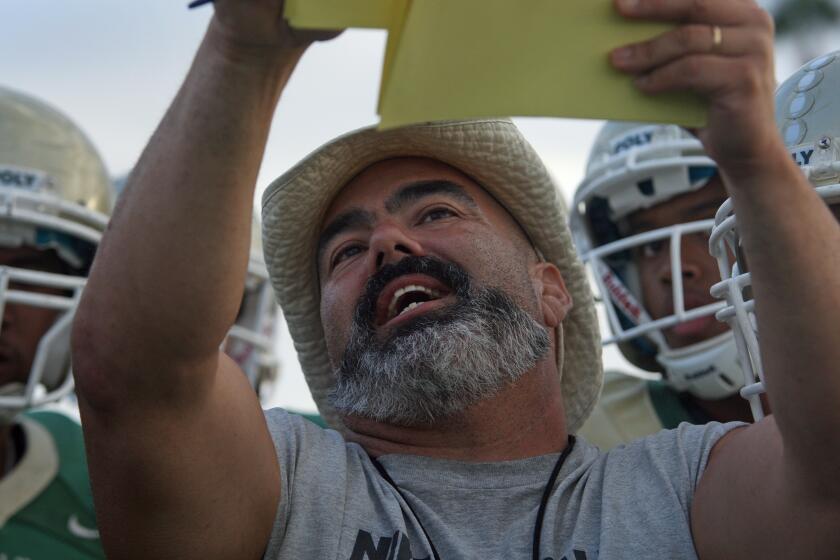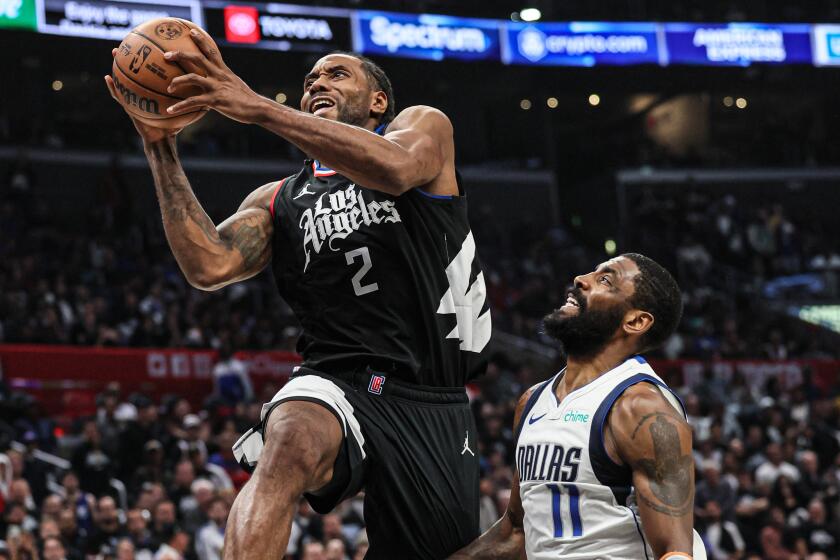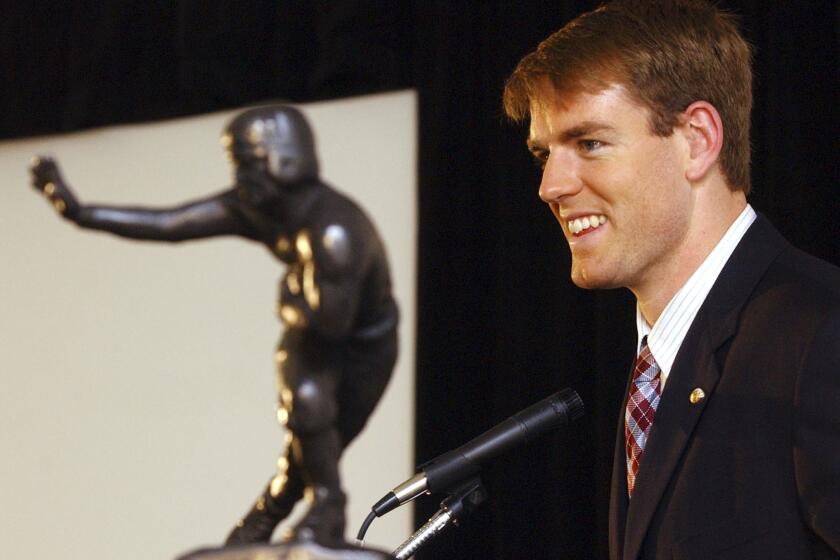Column: Baseball’s compensation system is broken. Owners and players will discuss building a new one this winter
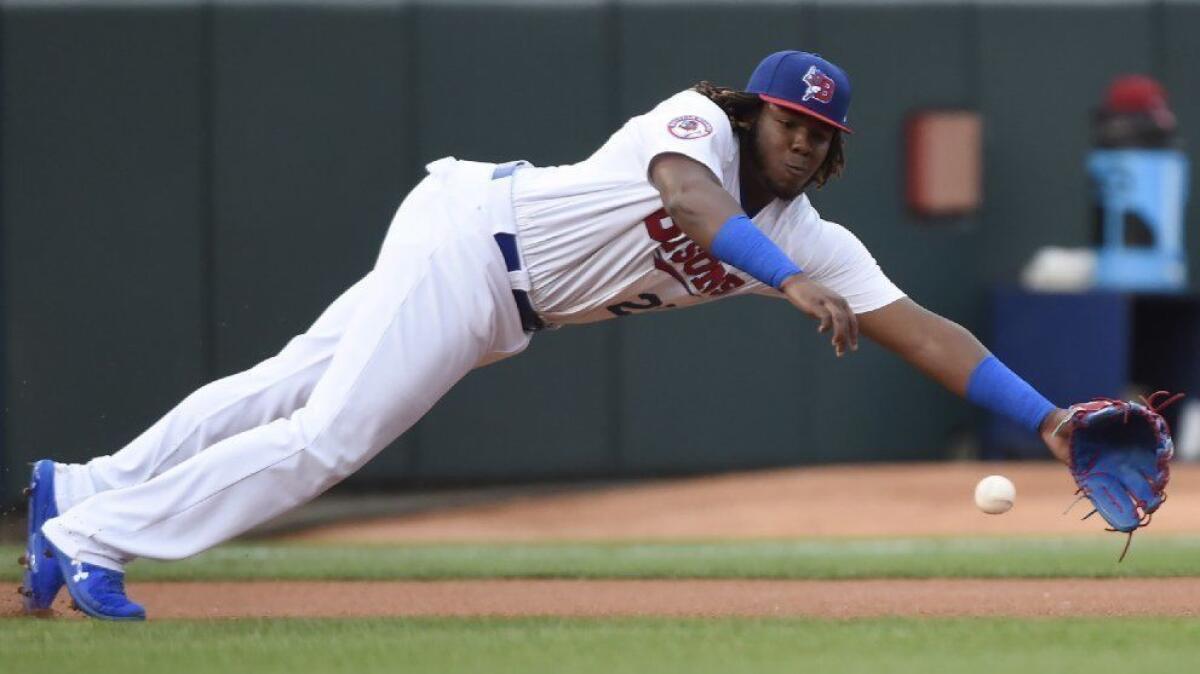
The word “collusion” was thrown around like a football last winter.
Thanksgiving passed, and Christmas too, and even Valentine’s Day. Pitchers and catchers reported to spring training. Veteran players were marooned at home, their hopes for lucrative and competitive job offers long since extinguished, their hopes for any kind of offer flickering.
There has been no evidence of collusion presented publicly. The players’ union filed a grievance, but it did not allege collusion. Instead, the union claimed four teams did not properly spend revenue-sharing money. The grievance remains unresolved.
So, too, do a variety of issues that have diverted the attention of fans toward the business of baseball, and too far from actual baseball.
Ronald Acuna, a front-runner for the National League rookie of the year, was ready for the major leagues at the start of the season, but the Atlanta Braves preferred to delay his debut for a month so they could delay his eventual free agency by a year.
Vladimir Guerrero Jr., the minor league player of the year, is ready for the majors now, but the Toronto Blue Jays also traded a month of his playing time now for a year later.
Of the nine free agents extended qualifying offers last winter – meaning a team could have to forfeit a draft pick to sign them – six remained unsigned when camps opened.
The behavior of each team is understandable, and even logical, in the context of the current player compensation system. But when the economic benefits of manipulating the system outweigh the sporting benefits of fielding the best possible team, the time has come to change the system.
In what could be a thaw in the frosty relationship between the commissioner’s office and the players’ union, the two sides are expected to discuss the compensation system as a whole this winter.
On the field, three years is a long time. At the bargaining table, not so much.
If the owners and players are to have any chance at implementing radical reform when the current collective bargaining agreement expires in three years, those discussions ought to start now.
The owners and players need to act like doctors: treat the disease, not the symptom.
Manipulation of service time is a symptom. Analytics is the disease. Not in itself, of course, but in how data-driven decisions have impacted every facet of player compensation.
It is bad enough that cold, hard data encourage teams to call up their best prospects when the calendar dictates, not when the performance dictates – and that goes for delaying salary arbitration, not just for delaying free agency.
It is bad enough that cold, hard data encourage teams to put a lesser value on a proven player who could contribute now because of a draft pick who might contribute in three years, or five years, or never.
It is bad enough that cold, hard data encourage teams to lose now in the hope of winning later, with the enticement that spending less and losing more might actually pay off in the standings and in the team treasury.
And now come the data that could transform pitching as we have known it. The starting pitchers that won the most games got paid the most. The relief pitchers that saved the most games got paid the most.
If data-driven decisions are driving those statistics out of vogue – consider “the opener,” first brought to you by the Tampa Bay Rays – then would that not be the latest data point in favor of junking the entire player compensation system and starting over?
Rob Manfred, the commissioner, said he has invited Tony Clark, the executive director of the union, to talk about it.
“I’ve told him that does not mean I’m necessarily prepared to alter the terms of the current agreement,” Manfred told The Times. “But, when you’re talking about an agenda like you laid out there, starting early and having the conversations tomorrow is not necessarily a bad thing. And I have made that offer to Tony.”
Tomorrow might be a bit immediate. The postseason comes first, and then the general managers and owners will caucus. So will the union leadership, the players on the executive board, and newly hired lead negotiator Bruce Meyer.
And then?
“We’re always willing to have serious discussions with the commissioner’s office aimed at moving our industry forward,” Clark told The Times.
The cold, hard data tell teams to invest their money in younger players, not older ones. The free agents tend to be the older ones.
“The union has been wedded to the seniority-based compensation system that we have since the day I arrived in baseball in 1987,” Manfred said.
“At various times over that history, we have suggested various alternative economic frameworks, some that were designed to compress payrolls in terms of having a minimum and a maximum. We made proposals in 1990 that were explicitly designed to link pay and performance more closely. They have wanted the seniority-based system. Over time, we have adjusted, and learned to live with it.
“If in fact they want to do something different, it really is incumbent upon them to come forward and tell us what it is that they are thinking about. That is why I made the invitation to Tony that I did.”
If employment trends toward rewarding younger players, then salaries ought to do the same. There is nothing sacred about when players should be eligible for salary arbitration, or free agency.
The player bitterness that pervaded last winter’s free agency stemmed from a violation of trust.
Under the current compensation system, players work their way through the minor leagues, through three years in the major leagues without recourse to salary arbitration, and through three more years in the majors under arbitration. Do all that, and free agency is your reward, and your chance to strike it rich.
Do all that now, and free agency remains your reward, except that now the data suggest that by then you often can be replaced by a younger, cheaper player. The system might not have changed, but the game has, as too many players found out the hard way last winter.
That was analytics, not collusion. An independent arbitrator ruled last month that there was enough evidence for a player to proceed in his collusion case against the league. But that player is Colin Kaepernick, and that league is the National Football League.
Twitter: @BillShaikin
More to Read
Get our high school sports newsletter
Prep Rally is devoted to the SoCal high school sports experience, bringing you scores, stories and a behind-the-scenes look at what makes prep sports so popular.
You may occasionally receive promotional content from the Los Angeles Times.


